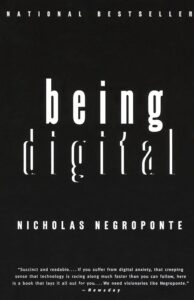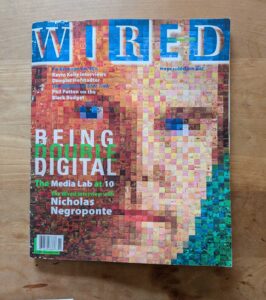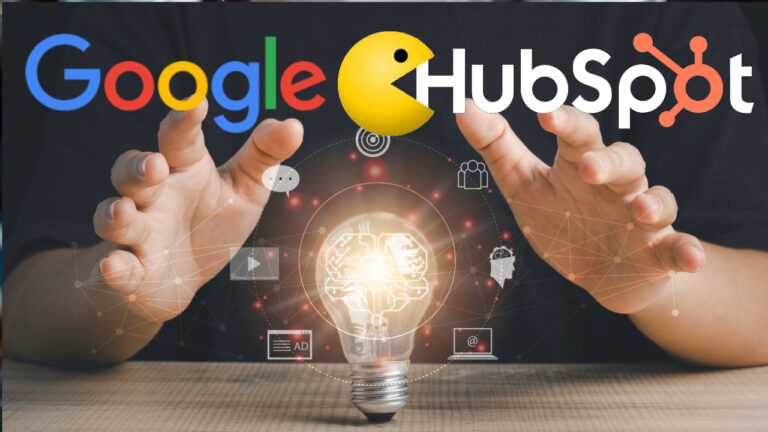
In the rapidly evolving landscape of AI, it’s crucial to recognize the visionary thinkers who paved the way for our current understanding, and few deserve more credit than Nicholas Negroponte. His seminal 1995 work, Being Digital, opened my eyes to the future of technology, and reading recent discussions about agent AI has compelled me to reflect on his insights. At the time of its publication, Negroponte’s ideas felt almost prophetic, and as we approach three decades later, many of his predictions have come to fruition, while others are still on the horizon.
I first discovered Negroponte in the November 1995 issue of Wired, where he graced the cover, and I was so captivated that I rushed to buy Being Digital. Since then, I’ve read it multiple times, each time finding new layers of insight that fueled my passion for digital marketing and the transformative potential of technology. Join me as we delve into his groundbreaking ideas and explore their relevance in today’s AI discourse.

Negroponte accurately foresaw the shift from atoms to bits—the central theme of his book. The transition from physical media (books, CDs, and DVDs) to digital streaming services, eBooks, and cloud storage exemplifies how profoundly correct his prediction was. Today, platforms like Spotify, Netflix, and Amazon Kindle have fundamentally reshaped entertainment and information consumption, aligning precisely with Negroponte’s insights. He also predicted the collapse of Blockbuster, once an iconic video rental giant, symbolizes this dramatic shift from physical rentals to digital streaming.
Additionally, Negroponte predicted pervasive connectivity and the widespread availability of wireless communication, anticipating the global explosion of Wi-Fi and mobile internet access. The ubiquity of smartphones, smart homes, and IoT devices further underscore his accurate understanding of digital evolution.
Negroponte also explored the concept of digital agents, identifying three distinct types: personalized agents, intermediary agents, and autonomous agents.
Personalized agents were envisioned as tailored assistants managing user preferences and tasks. Today, these are represented by intelligent personal assistants such as Siri, Alexa, and Google Assistant. These AI-driven tools leverage user-specific data to provide convenience, predict preferences, automate daily tasks, and enhance productivity. The widespread adoption of personalized digital assistants closely mirrors Negroponte’s original vision.
Intermediary agents were conceptualized as facilitators capable of efficiently navigating complex information and transaction processes. In contemporary digital landscapes, intermediary agents manifest through recommendation engines on platforms like Netflix, Amazon, and Spotify, as well as digital marketplaces and booking platforms such as Expedia, Shopify, and Airbnb. These systems significantly streamline decision-making, reduce complexity, and enhance consumer convenience.
Autonomous agents, as described by Negroponte, were expected to operate independently without human oversight, making complex decisions in dynamic and unpredictable scenarios. This vision aligns with today’s advanced AI models and robotic systems, such as ChatGPT, AutoGPT, autonomous vehicles, and sophisticated industrial robotics. However, while substantial advancements have been achieved, fully autonomous agents capable of comprehensive, reliable decision-making across all domains remain aspirational, as the technology continues to grapple with ethical, legal, and technical challenges.
Another prescient prediction was the rise of personalized media. Negroponte envisioned customized news, tailored content delivery, and the decline of mass broadcasting, forecasting the personalized feeds and targeted algorithms of Google, Facebook, and TikTok. His concept of the “Daily Me,” where each individual receives personally relevant information, is close but has yet to fully materialized. I believe this will be part of what personalized agent will offer in the future and can’t wait.
However, not all of Negroponte’s predictions have fully come to fruition. He anticipated an era of seamless, universally accessible digital infrastructure. Although significant strides have been made, gaps remain in digital equity, particularly in remote and developing regions lacking reliable internet connectivity. The envisioned universal digital equality remains incomplete, leaving disparities in access and opportunities unresolved.
Negroponte also speculated about the impact of digital technology on education, suggesting an imminent revolution in personalized, digitally-enabled learning environments. While educational technology has advanced, widespread personalized learning environments remain aspirational rather than broadly implemented realities, hindered by structural, economic, and educational policy challenges.
In “Being Digital,” Negroponte offered a compelling vision, many elements of which have impressively come true. Yet, challenges related to equitable access, digital divides, and fully personalized education remain critical areas awaiting realization. I invite you to expore Being Digital and his other work to provide essential perspectives on the evolving interaction between humanity and technology.
p.s. Look for another blog post some day on Negroponte’s influence Marshall McLuhan.




